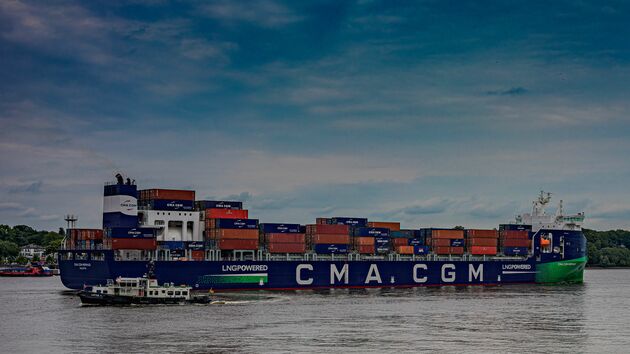The Rotterdam-Singapore Green and Digital Shipping Corridor (GDSC) partners successfully conducted a pilot project for the bunkering of mass-balanced liquefied bio-methane (LBM) at the Port of Rotterdam on 19 October.
Shell supplied 100 tonnes of mass-balanced LBM to the liquefied natural gas-powered container ship CMA CGM Tivoli.
Produced from waste-based feedstock, this LBM offers a lower-emission alternative to traditional marine fuels. Led by the GDSC’s bio-methane working group, this initiative supports the adoption of near-zero emission fuels along one of the world’s busiest shipping routes.
As part of the pilot, Shell issued a Proof of Sustainability certificate confirming the LBM’s compliance with European Union regulations. This certificate will undergo auditing by third parties accredited by the International Sustainability and Carbon Certification-European Union (ISCC-EU).
Moreover, the pilot utilized a mass balance methodology to track the LBM through the supply chain, ensuring compliance with ISCC-EU certification standards, the Renewable Energy Directive II, and FuelEU Maritime regulations. This rigorous certification and tracking process contributes to the development of methodologies aligned with the accounting framework adopted under the UN Framework Convention on Climate Change.
It also enables CMA CGM to validate that mass-balanced LBM is properly recognized under the EU Emissions Trading System (ETS) regulation. A similar pilot with comprehensive sustainability certification is planned for the Port of Singapore.
Established in August 2022 by the Port of Rotterdam Authority and the Maritime and Port Authority of Singapore (MPA), the Rotterdam-Singapore GDSC aims to drive maritime decarbonization and digitalization while fostering collaboration among global ports and stakeholders.
To date, the GDSC has united 28 global value-chain partners, including shipping lines, fuel suppliers, port authorities and operators, industry coalitions, banks, academic institutions, and knowledge organizations.
The bio-methane working group, led by SEA-LNG, focuses on promoting the adoption of zero- and near-zero emission fuels. Other GDSC working groups are exploring alternative fuels such as methanol, ammonia, and hydrogen. These efforts collectively advance the GDSC’s commitment to supporting sustainable fuel solutions for the global shipping industry.







